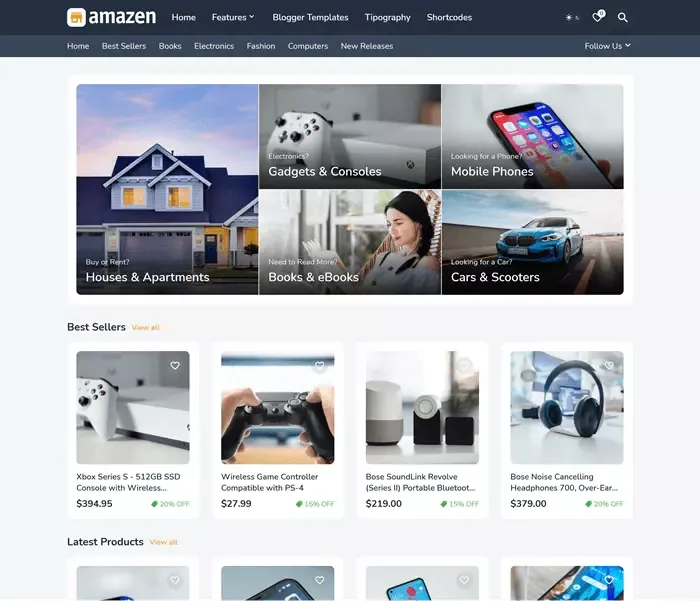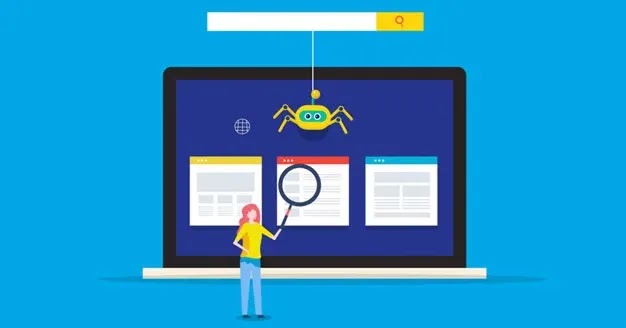A Guide to the Subscriber Business Model
According to a 2018
McKinseysurvey, 15% of Americans who shop online have signed up for one or more
subscriptions to receive products regularly. The number of companies applying
the subscriber business model is on the rise. That is why we see this model in
almost every industry today. You can read a more detailed story about the
subscriber business model below.
What is a subscriber business model?
When a customer periodically pays a company for a product delivered to
him or a service he uses, then that company applies a subscriber business
model. That is, the model provides continuous purchases over some time,
instead of the traditional, one-time purchase.
This model is not
new in the business world. It has existed for years and is taking precedence
in an increasing number of areas. There are growing chances that this will
continue in the future.
The era of subscriber models began with magazines and newspapers and continued
in almost all industries, from food and drink to gyms and IT services. The key
reason for this expansion of subscriptions is technology. The Covid pandemic
has also played a role in the last year.
Advantages of the subscriber business model
Customer loyalty is booming
Almost every customer prefers personalized products tailored just
to his taste. In addition, if you offer different variants of products (or
services) plus the personalization said earlier, expect greater customer
interest in your offer.
It is this value that you provide
that creates better, long-term customer relationships. To be
able to personalize products, it is necessary to collect enough adequate
customer data. By tracking customer behavior and needs, you can create
more magnific value for products or services and thus improve the user
experience.
Take, for example, the company IPSY, which, on a
subscription basis, delivers sets of cosmetic products to customers'
doorsteps. As its mission says, "Inspire individuals around the world to
express their unique beauty," it successfully collects revenue at the expense
of personalization.
For $ 13 a month, customers receive five
cosmetic products at their home address. But above all, they need to fill out
a survey for the company to determine what kind of cosmetic products they
prefer and thus adjust the package exactly for them. The survey contains
questions related to the color of hair and eyes of customers, skin tone, and
the like. Customers can rate the products they get to improve the package's
content.
The impact of brand loyalty on word-of-mouth marketing should also be
mentioned. Most people will listen to the recommendations of their friends or
influential influencers rather than the company's marketing messages. This
way, you gain new potential customers without marketing costs.
Income is better predicted
As the future potentially brings turbulence in business, this model
generates continuous income that can save a company’s finances in times of
crisis. The mere existence of revenue forecasting capabilities makes it easier
to determine future demand. This makes inventory planning and
management more comfortable.
In addition, if your products prove
to be valuable to customers, they can order gigantic and more expensive
product packages if, of course, you offer them. We should not forget about
up-sell and cross-sell techniques. This generates revenue
without the additional marketing costs of attracting customers.
Lower marketing costs
Acquiring the majority of new customers requires certain marketing
costs. Some customers will unsubscribe, and some will not. Those who subscribe
will not incur additional marketing costs and will generate revenue for the
company for a long time.
Disadvantages of the subscriber business model
Although this model brings many advantages for buyers and sellers, we
should not neglect the disadvantages.
Questionable customer interest
Customers may pay for your goods or service even if they never use them.
Due to the Internet and television, we pay for a landline phone as part of the
package, but we rarely use it.
Determine why customers are not
interested in the product, for example, by sending a simple survey. This way,
you can determine if there is room for improvement that would keep such
customers from dropping out of the subscription.
Unsubscribe
The reliable monthly income you collect can be shaken by subscriptions
being canceled by customers.
The reasons for canceling subscriptions are numerous:
- Complicated subscription system
- lack of transparency with customers
- poor or non-existent customer service
- poor quality of products or services
They are unavoidable, which is why you must continue to investigate what
is causing so many unsubscribes. You can, for example, ask people why they
unsubscribed via a questionnaire, email, or phone call and then figure out how
to fix the problem.
The monotony of the offer
Imagine if Netflix would constantly offer the same content offering in
its arsenal. You would probably get bored after two months and not be
interested in continuing your subscription.
Therefore, it is
necessary to periodically improve products and services to make the offer more
diverse and keep customer interest.
Speaking of diversity, pay
attention to adapting the offer to the seasons. Few people buy summer products
in winter. But subscriber companies like FabFitFun are adapting their product
to seasonal characteristics to avoid changes in sales.
What you need to pay attention to if you apply the subscriber business model
Value of a product or service
Customers will continue to subscribe to your product or service only if
they believe the value you provide is greater than the price they must pay for
it. To know what value you need to work on it is necessary to
research the market and determine what your customers want or need.
By
continuously collecting and analyzing customer data, you can adjust the value
of products and services according to their needs. By improving the value you
further strengthen the trust of customers in your offer.
Price
First of all, there need to be
several different product or service offerings. For example that there
is a basic and improved version of the product, and therefore
different prices. Each customer decides which product or service he
wants to subscribe to according to individual needs and possibilities.
In
addition to including the cost of producing products or providing services in
the total price, it is also important to continuously analyze the market. That
way you can track the prices of competing products. If you develop a product
or service in such a way that its value increases, the price will
increase.
One of the common strategies that companies use is freemium. It means
that the company offers a basic product or service for free. It can then
attract people who would eventually become long-term,
loyal customers and who would at some point switch to a
paid version of a product or service.
For example, Skype
offers the possibility of free video calls over the Internet. But if the user
wants to call another person on a mobile or landline phone, he will have to
pay for that service.
Another example is
Dropbox. The user
has 2 GB available to store images and documents for free, but if he wants
more space, he has to subscribe.
That is, freemium attracts clients
who, if they find a product or service valuable, can upgrade to a paid
subscription.
Channels
Whether it's through a website, phone, or something else, customers need
to be able to subscribe in a variety of ways. The subscription
application process should be automated and simple.
Infrastructure
It is also necessary to choose the appropriate system that will manage
subscriptions and charges for products and services that the company offers to
customers. In this case, the collection is more complex than a one-time sale
of the product. That is why a reliable and automated system is very
necessary. As the number of subscribers grows, so does the need to improve the
infrastructure.
Transparency
Some companies try to hide payment policies, unsubscribe, and other
important information from customers. Therefore, transparency regarding the
terms of the subscription is necessary for your customers to feel safe when
signing up for the subscription.
Follow the indicators
They can tell you a lot about whether your company is growing or
stagnating. How many new members do you have? What are current revenues and
expenses? Can you predict future income and expenses? How much do you spend on
gaining new customers?
Good examples subscriber business models for practice
Dollar Shave Club
It is one of the most famous subscriber companies, which has been
delivering quality barbers to their home address since 2011. They broke into
the market at more affordable prices compared to the competition. To date,
they have included various care products in their range, as they say, "from
head to toe."
Stitch Fix
Customers who want to have a personal stylist who will choose the right
pieces of clothing instead and deliver them to their home address should think
about this company. When applying, a potential buyer goes through questions
that determine his style, taste, and price range. When the clothes arrive at
the customer's address, he can try them on, buy what he likes, and return the
rest for free.
Bespoke Post
This company offers users to do a short quiz to get an insight into
their preferences. According to the results of the quiz, they compose the
contents of the box that customers can change or not accept. They work with
different brands, and quality comes first. The contents of the boxes are
diverse, so customers can get different tools, products, and clothes.
Winc
Enjoying wine should be as simple as getting a bottle of specially
selected wines at your home address. The team that creates over 100 wines
believes in that. First, customers need to fill out a questionnaire about
their preferences, after which the selected wines are delivered to their home
address.
Sock Fancy
Quality and comfortable socks of interesting designs, customers can get
once a month, every 3 or 6 months, and even once a year. A design arrives at
their home address that they don't know what it looks like before. This
surprise factor further contributes to the user experience.
BarkBox
If we could understand dogs, we would get good reviews for this company.
Each of their boxes contains treats and toys for dogs. They currently number
over 2,000,000 satisfied dogs and their owners.
Blue Apron
This company delivers culinary recipes and fresh ingredients for meals
to your home address. Customers can choose whether they want recipes and
ingredients that include meat and fish, or they want to make exclusively
vegetarian dishes. At the request of customers, 2 to 4 recipes a week arrive
at their door with ingredients for dishes for two or four people.
MasterClass
Non-formal education has never been more accessible. MasterClass offers
video lessons from today's greatest experts. On the site, you can find lessons
from various fields, from music to business, while the subscription is charged
annually.
Conclusion
The market has never been richer in products and services than it is
today. For a company to beat the competition, it is necessary to know well the
needs and problems of its customers and accordingly create a valuable product
or service.
It is this value that attracts and keeps customers
subscribing and strengthens the relationship between the company and
customers, and this, in turn, affects the growth and development of the
company. Innovation significantly helps to create value that will
differentiate you from your competition.
Therefore, if you have not
yet switched to a subscriber model and plan to do so, consider why you want to
establish one and what value your company has to offer.










